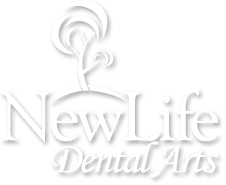Snoring isn’t just noisy; it can also affect your health, especially your oral health. Many people think of snoring as a harmless annoyance, but it can lead to serious dental problems. Understanding the link between sleeping and oral health can help you take better care of your teeth and gums.
When you snore, your mouth often stays open. This can cause dryness, making it hard for saliva to do its job of protecting your mouth. Saliva is essential because it helps wash away food particles and bacteria that can cause tooth decay and gum disease. Without enough saliva, your mouth becomes a breeding ground for these problems.
Snoring can also signal other issues, like sleep apnea, which affects how well you breathe while sleeping. Poor breathing can limit the oxygen flow to your mouth and gums, making them prone to infections. Addressing these issues is crucial for keeping your mouth healthy and your smile bright.
In this article, we’ll explore how snoring affects oral health, identify common dental problems linked to snoring, and provide tips on prevention and professional treatments. Understanding these connections will help you take proactive steps to protect your oral health while getting better sleep.
How Snoring Affects Oral Health
Snoring does more than disrupt sleep; it can also harm your teeth and gums. When you snore, you often sleep with your mouth open. This can lead to dry mouth, where there isn’t enough saliva to keep your mouth moist. Saliva plays a key role in protecting your teeth and gums by washing away food particles and neutralizing acids produced by bacteria. Without enough saliva, your mouth becomes dry, increasing the risk of cavities and gum disease.
Dry mouth, or xerostomia, creates an environment where bacteria can thrive. This makes it easier for plaque to build up on your teeth, leading to tooth decay and gum issues. Snoring can also cause more than just dryness. It can worsen existing dental problems by allowing more bacteria to settle in your mouth.
In addition, snoring can indicate breathing difficulties, like sleep apnea. Sleep apnea reduces the oxygen levels in your blood, impacting your overall health, including your oral health. When oral tissues don’t get enough oxygen, they become more prone to infections and inflammation. Understanding these effects helps highlight the importance of addressing snoring for the sake of your dental health.
Common Dental Issues Linked to Snoring
Snoring isn’t just noisy; it can lead to significant dental problems. Here’s a list of some common dental issues associated with snoring:
1. Gum Disease: Snoring-related dry mouth can lead to gum problems. Without enough saliva, gums can become irritated and inflamed, making gum disease more likely.
2. Tooth decay: Dry mouth reduces the protective benefits of saliva, allowing bacteria to produce acids that erode tooth enamel, leading to cavities.
3. Bad Breath: Less saliva means more bacteria and food particles remaining in the mouth, which can cause bad breath.
4. Mouth Sores: Persistent dry mouth and bacterial buildup can also cause painful sores and ulcers inside the mouth.
Snoring worsens these conditions by creating an environment where bacteria can thrive. For example, without saliva to neutralize acids, tooth enamel can weaken faster, accelerating decay. Similarly, the gums become more vulnerable to infections without saliva’s protective coating.
Addressing snoring can help mitigate these dental issues. Regular dental check-ups and proper oral care can tackle the problems caused by snoring. Recognizing these connections is the first step in protecting your oral health from the impacts of snoring.
Preventative Measures for Snoring-Related Oral Health Issues
Preventing the dental problems caused by snoring involves a mix of lifestyle changes and good oral care routines. Here are some tips to help reduce snoring and protect your teeth and gums:
Lifestyle Changes:
1. Sleep Position: Sleeping on your side can help reduce snoring. When you sleep on your back, your tongue and soft palate can collapse to the back of your throat, causing snoring.
2. Weight Management: Maintaining a healthy weight can reduce the fatty tissue in the back of the throat, which can minimize snoring.
3. Avoid Alcohol and Sedatives: These substances relax the muscles in your throat, increasing the likelihood of snoring.
Oral Care Routines:
1. Stay Hydrated: Dry mouth can be managed by drinking plenty of water throughout the day. This helps keep the mucous membranes in your throat moist and reduces snoring.
2. Brush and floss: Keeping a regular brushing and flossing routine removes food particles and plaque, which reduces the risk of dental issues, especially if you are prone to dry mouth.
3. Use a Humidifier: Adding moisture to the air can help keep your mouth and throat hydrated, reducing dry mouth symptoms and making it easier to breathe through your nose.
By following these preventative measures, you can help reduce snoring and protect your oral health. Simple daily habits can make a big difference in your overall well-being.
Professional Treatments for Snoring and Related Oral Health Problems
When lifestyle changes aren’t enough to stop snoring, several professional treatments can help. Consulting with a dentist can provide you with effective solutions tailored to your needs.
Dental Treatments:
1. Custom Mouthguards: Dentists can create custom mouthguards, also known as mandibular advancement devices (MADs). These are designed to keep your airway open by positioning your lower jaw slightly forward, reducing snoring.
2. CPAP Machines: Continuous Positive Airway Pressure (CPAP) machines are commonly used for people with sleep apnea. They deliver a steady stream of air through a mask to keep your airways open throughout the night.
Benefits of Consulting a Dentist:
1. Personalized Care: Dentists can provide treatments that are specifically designed to address your snoring issues. A custom approach ensures more effective results.
2. Early Detection: Regular dental visits help in early detection of problems caused by snoring, such as gum disease and tooth decay.
3. Ongoing Support: Dentists offer ongoing support and adjustments to treatments as needed, ensuring that your snoring and related dental issues are managed effectively.
Professional treatments not only help reduce snoring but also improve your oral health. Consulting with a dentist is a proactive step toward better health and a good night’s sleep.
Conclusion
Snoring isn’t just a nighttime nuisance; it can have real impacts on your oral health. Understanding how snoring affects your teeth and gums helps you take preventive measures. By adopting good lifestyle habits and maintaining a consistent oral care routine, you can reduce the risks associated with snoring.
Professional treatments offer additional support. Consulting a dentist for personalized care ensures that your dental health is protected while addressing the root causes of snoring. Not only can this improve your sleep quality, but it also helps in keeping your mouth healthy and free from common dental issues.
Taking action now matters. If snoring is affecting your health and well-being, don’t wait to seek help. Contact New Life Dental Arts for a consultation and explore the best options for managing snoring and maintaining your oral health. Your health and smile deserve the best care.

